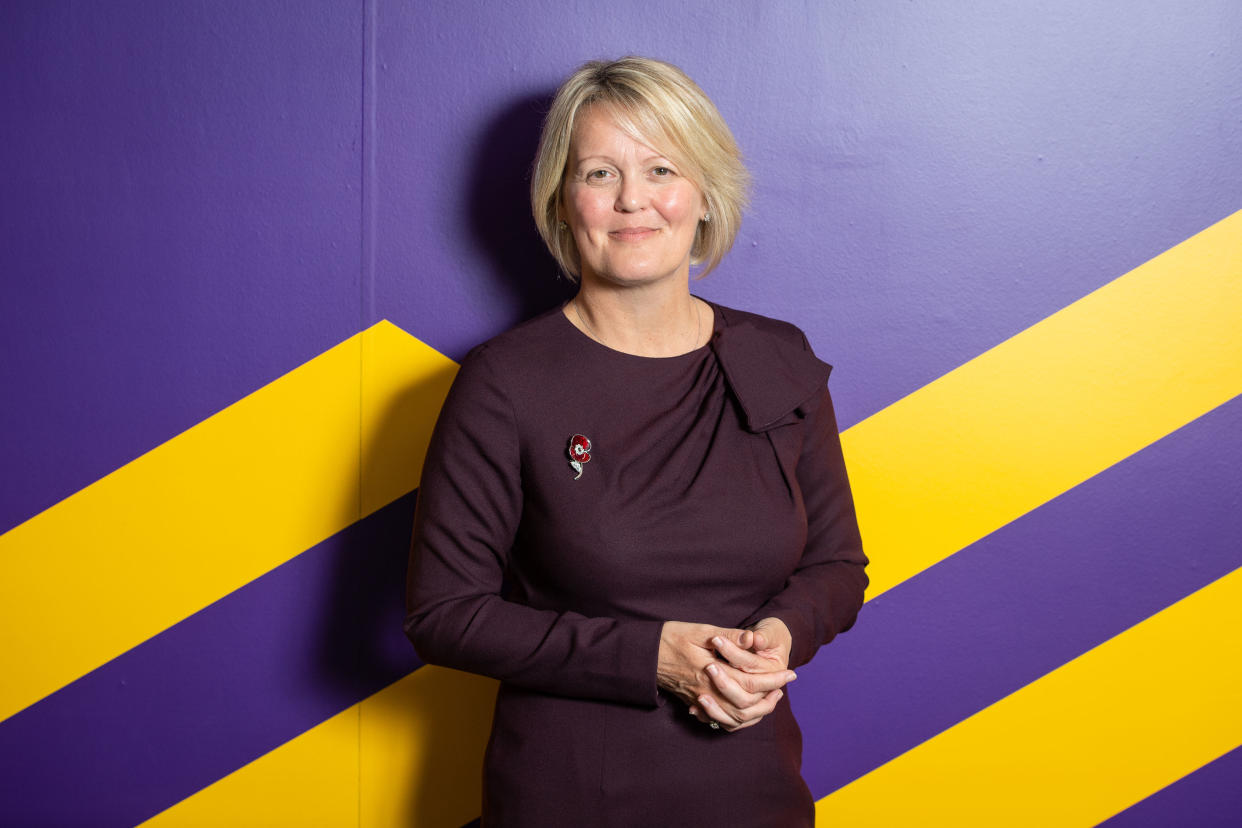What to watch: RBS profits drop, markets slide, and Ryanair warns on jobs

Here are the top business, market, and economic stories you should be watching today in the UK, Europe, and abroad:
RBS profit halves as it sets aside £802m to cover COVID-19
Royal Bank of Scotland’s (RBS.L) profit halved in the first quarter of 2020, as loss provisions soared by almost ten times due to COVID-19.
RBS’s pre-tax profit fell 49% to £519m ($650m) in the first three months of the year. Profit attributable to shareholders fell 59% to £288m.
Both measures were higher than analysts had expected, thanks in part to strong revenue growth. Income in the quarter rose 3% to £3.1bn, which was above forecasts. Revenue jumped 9.3% at RBS’s trading arm, Natwest Markets.
First quarter profits were held back by loss provisions, which were higher than analysts had expected. RBS set aside £802m to deal with credit losses in the quarter, up from just £86m a year earlier. Analysts had penciled in a charge of £515m.
Shares climbed 2.9%.
Markets fall as Trump threatens China tariffs over pandemic
Stocks sank in London on Friday after US president Donald Trump threatened to impose new tariffs on China over its handling of the coronavirus crisis.
The FTSE 100 index of Britain’s biggest listed companies (^FTSE) slid 2.3% in early trading. It marked a stark reversal of the rally over the past week as several European countries have reported falling infection rates and begun to ease their lockdowns. The FTSE 250 was also trading 2% lower (^FTMC).
Many leading stock exchanges in Europe, Asia and elsewhere were closed for labour day public holidays on 1 May, with trading volumes much lower. But several countries where markets remained open also saw Trump’s fresh escalation of US-China tensions dent investors’ confidence.
The Nikkei in Japan (^N225) shed 2.8% overnight, while Australian shares on the S&P/ASX 200 index (^AXJO) dropped 5% in their biggest fall in five weeks.
Futures pointed to a fall in US stocks on Friday. S&P 500 futures (ES=F) were trading 2.2% lower, Dow Jones Industrial Average futures (YM=F) were down 1.9%, and Nasdaq futures (NQ=F) dropped furthest, down 2.7%.
Ryanair cuts up to 3,000 jobs and O'Leary takes pay cut
Ryanair (RYA.L) has warned up to 3,000 mainly cabin crew and pilot staff could lose their josses as it battles to survive the coronavirus crisis.
It comes just days after British Airways owner IAG (IAG.L) announced 12,000 staff could face redundancy, in a grim week for a sector struggling to cope as air travel has plummeted.
Europe’s largest budget airline said some head and back office teams also faced job losses, while group CEO Michael O’Leary agreed to extend his 50% pay cut until March next year.
Pressure growing on government to extend furlough scheme
Pressure is mounting on the government to extend its landmark job retention scheme beyond June, amid warnings that millions of workers could lose their jobs without additional state support.
Business groups and private sector economists have in recent days called on the government to extend the programme, which sees the government pay up to 80% of employee wages to a maximum of £2,500 per month.
Chancellor Rishi Sunak announced the scheme on 20 March to help support businesses through the COVID-19 lockdown. It was initially due to run until the end of May but has been extended to June.
Robert Wood, an economists at Bank of America, this week warned the UK could face a “double dip” economic crash unless the scheme is extended until December — one of the most radical suggestions from the private sector.
RBS abandons Monzo-challenger Bó
Royal Bank of Scotland (RBS.L) has ended an attempt to compete with digital challenger banks like Monzo and Revolut, shutting down its app-only bank Bó.
RBS said in its full-year results on Friday it would “wind down Bó as a customer-facing brand” just six months after the challenger brand was launched to the public.
RBS will instead focus on Mettle, the second of its two digital-only challenger brands. Bó will be merged with Mettle, which is focused on the small business market.
“The circumstances have changed,” chief executive Alison Rose told Yahoo Finance UK on Friday.
“We’ve always said that we will look to innovate. Clearly in the current situation we’ve had to make prioritisation choices around where we should invest and what we should do to support our existing customers.”

